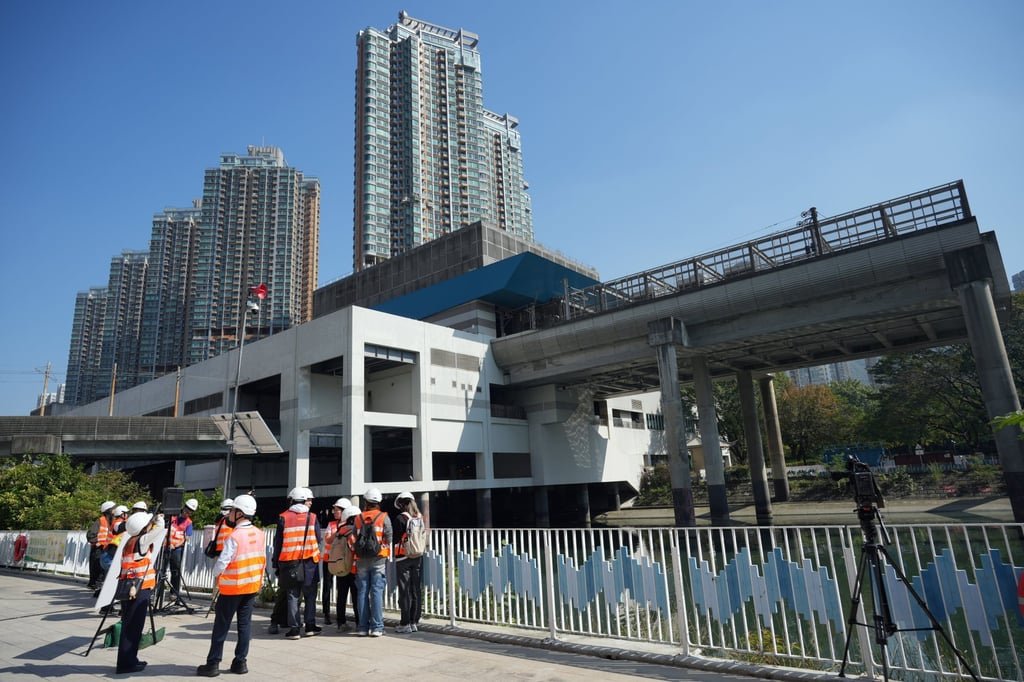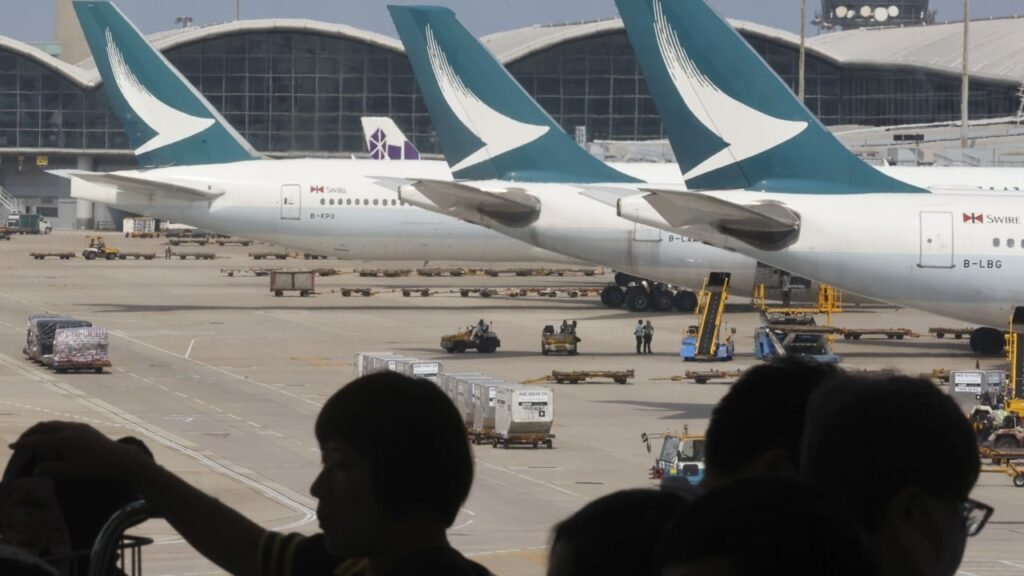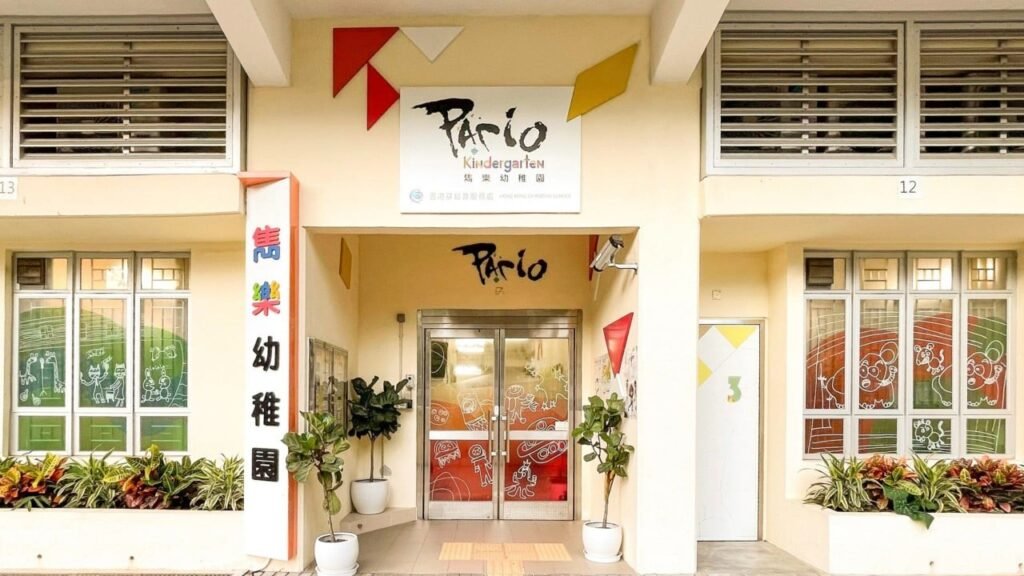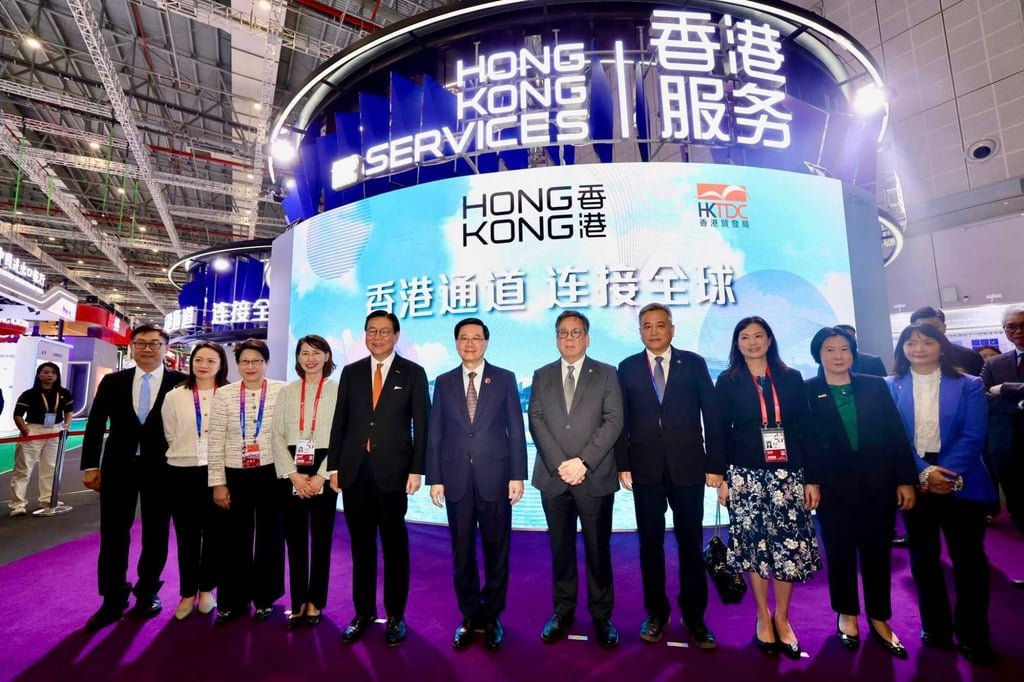- Hong Kong unveils Fintech 2030 strategy with four pillars—Data, AI, Resilience, and Tokenisation—to cement its position as a global fintech hub
- HKMA announces Ensemble Pilot for real-value tokenised transactions and expanded GenAI Sandbox++ to drive responsible innovation
Nine years ago, 2,500 curious minds gathered in Hong Kong for what seemed like a modest experiment—the inaugural Fintech Week—tickets sold out in two days. Few could have predicted that this gathering would catalyse the transformation of one of Asia’s most traditional financial centres into a global fintech powerhouse.
Fast forward to November 3, 2025, and the scene has changed dramatically. Over 37,000 participants from across the globe converged on the city’s 10th Fintech Week—nearly 15 times the original attendance. But this milestone gathering wasn’t just a celebration. It was a strategic pivot point.
Eddie Yue, Chief Executive of the Hong Kong Monetary Authority (HKMA), stood before the crowd to unveil the Fintech 2030 strategy. This five-year roadmap signals Hong Kong’s recognition that the rules of the game have fundamentally changed.
The city that once focused on accelerating fintech adoption now faces a different imperative: defending its position as the world’s top-ranked fintech hub in an era where standing still means falling behind.
“We are now ready to enter the Fintech 3.0 era, where technology is embedded in daily life, powered by trust, transparency, and intelligence, driving real-world impact and lasting resilience,” Yue declared, introducing a framework built on four strategic pillars abbreviated as “DART”: Data, Artificial Intelligence, Resilience, and Tokenisation.
The timing is deliberate. Hong Kong’s Fintech 2025 strategy successfully created what Yue called “a virtuous cycle” that propelled the city to number one globally for fintech offerings, according to the Global Financial Centres Index 38.
But Singapore, mainland China, and other Asian financial centres aren’t standing idle. The next five years will determine whether Hong Kong can maintain its edge—or watch it erode.
The AI gambit: From experimentation to infrastructure
Artificial intelligence isn’t new to Hong Kong’s banks—over three-quarters are already deploying or piloting AI solutions across credit assessment, risk monitoring, and customer engagement. But the Hong Kong fintech strategy recognises that scattered experimentation won’t win the next decade. What’s needed is coordinated infrastructure.
The HKMA’s answer is threefold. First, expand the existing GenAI Sandbox into “GenAI Sandbox++”—breaking down barriers to unite innovators across sectors and borders for high-impact use cases.
Second, co-create a shared AI infrastructure for finance with industry partners, featuring trusted computing, shared tools, and secure data environments that lower entry barriers and level the playing field between large incumbents and nimble startups.
“The question now is no longer whether AI will transform finance—but how we can ensure that transformation serves the public good, strengthens our economy, and is built on bedrock principles of security, transparency, and trust,” Yue stated, articulating what amounts to a bet that responsible innovation can be both a competitive advantage and a regulatory imperative.
The third piece addresses the trust deficit that has plagued AI adoption: a Responsible AI Toolkit. This includes Project Noor, a collaboration with the BIS Innovation Hub that introduces an Explainable AI tool designed to enhance transparency in AI models for both financial institutions and their supervisors.
In an industry built on confidence, opacity is a liability Hong Kong can’t afford.
From blockchain hype to tokenised reality
If AI represents Hong Kong’s bet on shared infrastructure, tokenisation represents its commitment to moving beyond pilot purgatory. After years of blockchain conferences, proof-of-concepts, and cautious experimentation, the city is making a decisive move into real-value transactions.
The announcement of the Ensemble Pilot program marks this inflexion point. Following a year of testing with industry partners and the Securities and Futures Commission (SFC), the pilot will enable actual transactions using tokenised deposits and digital assets—not simulations, but real money moving through tokenised rails.
The initial focus on tokenised money market funds is strategic. Money market funds represent a multi-trillion-dollar global market with clear settlement inefficiencies that tokenisation can address.
Success here could provide the template for expanding to bonds, trade finance, and cross-border investments—the vision Yue articulated of infrastructure “where bonds settle in seconds, trade finance moves with real-time data, and cross-border investments can flow seamlessly.”
“We see tokenisation not just as a technological leap, but as an important additional feature for our financial infrastructure,” Yue explained, framing it not as revolutionary disruption but as evolutionary enhancement—a characteristically pragmatic Hong Kong approach.
The broader Project Ensemble has been quietly building the plumbing: setting interoperability standards, testing cross-border use cases, and developing production-ready infrastructure. The Ensemble Pilot represents the moment when that infrastructure goes live.
Breaking down data silos: The Mainland connection.
Hong Kong has long positioned itself as a bridge between mainland China and the world. The data pillar of the fintech strategy makes this literal, with cross-border data infrastructure emerging as a critical competitive advantage.
The Commercial Data Interchange (CDI), now connected to the Government’s Consented Data Exchange Gateway, is transforming how Hong Kong’s small and medium enterprises access capital. By linking disparate data sources, the platform helps SMEs convert transaction records and operational data into creditworthiness—unlocking financing that traditional assessment methods might miss.
Project CargoX extends this logic to trade finance, bringing logistics and shipping data directly into financing decisions. But the real strategic play is cross-border. Through Cross-Boundary Credit Referencing (CBCR) and the development of a Shenzhen-Hong Kong Data Validation Platform, Hong Kong is building what Yue described as “the foundations for a connected, trusted cross-boundary data ecosystem.”
This matters because the Greater Bay Area—encompassing Hong Kong, Macau, and nine mainland cities including Shenzhen and Guangzhou—represents a US$1.9 trillion economy with 86 million people. If Hong Kong can become the trusted data layer connecting this ecosystem, it secures a role that pure technological innovation alone cannot guarantee.
The expansion of CDI datasets in the coming years, including “golden source data” from the government, aims to make Hong Kong’s data infrastructure not just comprehensive but authoritative—the definitive source that both sides of the border can trust.
The quantum clock is ticking
While AI and tokenisation address present opportunities, the resilience pillar confronts a future threat that most financial centres are still ignoring: quantum computing.
The timeline is uncertain, but the threat is not. When sufficiently powerful quantum computers arrive—whether in five years or fifteen—they will break the cryptographic systems that currently secure everything from payments to trading to custody. The financial system’s bedrock assumption of cryptographic security will crumble overnight.
Hong Kong’s response is to build quantum-safe infrastructure now, before the crisis arrives. The HKMA is collaborating with academia and international partners on post-quantum cryptography and quantum-key distribution, while exploring how quantum and high-performance computing could enhance financial modelling and real-time risk assessment once harnessed productively.
“By building quantum-safe and computation-ready infrastructure today, we are future-proofing Hong Kong’s financial core before these technologies reach the mainstream,” Yue said, framing resilience not as defensive conservatism but as strategic foresight.
The authority is simultaneously enhancing core financial market infrastructures—the Faster Payment System (FPS), Real-Time Gross Settlement (RTGS) system, and Central Moneymarkets Unit (CMU)—to ensure they can scale with growing transaction volumes and complexity.
These platforms, which already handle registrations exceeding double Hong Kong’s population for FPS alone, must expand in both reach and capability to support next-generation finance settlement.
The quantum threat crystallises the stakes of the Fintech 2030 strategy: Hong Kong isn’t just competing for market share in digital finance. It’s positioning to remain a trusted financial hub when the technological ground shifts beneath everyone’s feet.
The momentum question
The numbers look impressive: Fintech Week has grown fifteenfold to 37,000 participants, the Faster Payment System registers more than double the city’s population, and banks project HK$100 billion (approximately US$12.8 billion) in annual technology investment over the next three years.
But momentum isn’t leadership. “Back then, our goal was to inject momentum and accelerate fintech adoption,” Yue said. “Now, it’s time to focus on advancing responsible innovation.” Getting banks to adopt proven technologies was the easy part. Leading innovation while maintaining stability is what comes next—especially as Singapore offers aggressive regulatory flexibility and mainland China operates at unmatched scale.
Yue framed the dilemma bluntly: “While adopting innovation carries risk, standing still carries an even greater one—the risk of falling behind.”
Whether Hong Kong can execute its 40-plus initiatives while competitors sprint ahead will determine not just its fintech ranking but its broader role in 21st-century finance. The city has built impressive foundations. Now comes the harder test: building the future on them, before someone else does.
Want to experience the full spectrum of enterprise technology innovation? Join TechEx in Amsterdam, California, and London. Covering AI, Big Data, Cyber Security, IoT, Digital Transformation, Intelligent Automation, Edge Computing, and Data Centres, TechEx brings together global leaders to share real-world use cases and in-depth insights. Click here for more information.
TechHQ is powered by TechForge Media. Explore other upcoming enterprise technology events and webinars here.









